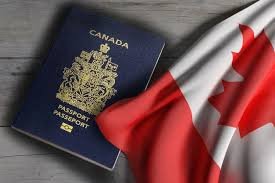Canada has consistently ranked as one of the best countries in the world to live in, known for its quality of life, diversity, and opportunities. For Indian immigrants, it offers the chance to build a secure, prosperous, and culturally enriched life. But what does life in Canada truly look like for Indian immigrants?
This blog explores key aspects of living in Canada as an Indian immigrant, touching on employment, education, lifestyle, community, and challenges. If you’re considering immigrating or have recently moved, you’ll find valuable insights to help you transition into life in Canada.
Table of Contents
Why Do Indian Immigrants Choose Canada?
Canada has been a global hotspot for immigration, and Indian citizens consistently top the list of new immigrants arriving each year. But what attracts Indian immigrants to Canada? Here are some key reasons:
- Welcoming Immigration Policies: Canada’s points-based immigration programs, such as Express Entry and Provincial Nominee Programs, make it easier for skilled individuals to settle in the country.
- Job Opportunities: Canada has a strong economy with demand across numerous sectors, particularly IT, healthcare, engineering, and finance.
- High Quality of Life: Indians moving to Canada enjoy universal healthcare, a world-class education system, and safety.
- Cultural Diversity: With vibrant Indian communities in cities such as Toronto, Vancouver, and Calgary, new immigrants often feel at home while celebrating cultural festivals like Diwali and Holi.
- Dual Citizenship: Canada allows dual citizenship, meaning Indian immigrants can retain their Indian nationality while acquiring Canadian citizenship.
Understanding why Canada is an appealing destination is an important starting point. But how does settling into life look?
Employment for Indian Immigrants in Canada

Industries That Hire Indian Immigrants
Indian immigrants possess skills in many in-demand sectors in Canada. Below are some of the industries actively hiring Indian workers:
| Industry | Popular Roles | Average Salary in CAD |
|---|---|---|
| Information Technology | Software Engineers, Analysts | $80,000 – $140,000 |
| Healthcare | Nurses, Doctors, Pharmacists | $60,000 – $200,000 |
| Construction | Civil Engineers, Technicians | $50,000 – $100,000 |
| Education | Teachers, Professors | $50,000 – $90,000 |
| Financial Services | Accountants, Financial Analysts | $55,000 – $120,000 |
Networking and Finding Jobs
Networking is essential for finding employment in Canada. Platforms like LinkedIn, community job boards, and networking events can significantly improve job prospects. Additionally, programs like those offered by immigrant-serving organizations help integrate professionals into the Canadian job market.
Important Tips for Indian Professionals
- Credential Recognition: Certain professions (e.g., medicine or law) require proper certification that may differ from what’s recognized in India.
- Job Search Strategy: Polish your resume to match Canadian standards and consider internships to build local experience.
- Workplace Culture: Canadian workplaces value punctuality, communication, and inclusivity. It’s vital to adapt to these while showcasing your skills.
Education System in Canada
One reason many Indian families choose Canada is its strong emphasis on education, both for children and adults. Parents appreciate the range of public and private schools, and students find higher education in Canada to be more affordable compared to options in the USA or UK.
Popular Educational Institutions
Canada is home to top-ranked universities that welcome international students. Some of these include:
- University of Toronto
- University of British Columbia (UBC)
- McGill University
- University of Waterloo
Many Indian students pursue studies in engineering, business administration (MBA), computer science, and healthcare.
Supporting Your Children’s Education
Canadian schools promote experiential and student-centered learning. Free public education up to Grade 12 ensures that children receive quality instruction. Families moving with school-aged kids should research school districts for quality before settling into a new neighborhood.
Financial Aid & Scholarships
Indian students often qualify for scholarships or financial aid to reduce tuition costs. Universities offer programs aimed at supporting immigrant students financially and academically.
Lifestyle and Community
Cultural Diversity
India’s rich and varied culture finds reflection across many Canadian cities. Grocery stores selling Indian spices, restaurants serving authentic dishes like biryani and dosas, and temples and gurudwaras are common across urban centers like Toronto, Surrey, and Brampton.
Festivals & Celebrations
Indian immigrants regularly celebrate festivals like Diwali, Eid, and Christmas, blending traditions with Canada’s multicultural ethos. Community centers and Indian associations often organize grand events.
Climate Adaptation
Canada’s weather varies by region, but Indian immigrants, especially first-timers, may need time to adjust, particularly to its cold winters. Investing in quality winter gear and heating systems is crucial for comfort.
Public Services
Public services like healthcare, transportation, and social benefits lend peace of mind to immigrants. Canada’s public healthcare system is free for residents, while cities feature clean and efficient public transit options.
Challenges Faced by Indian Immigrants
While life in Canada offers numerous positives, no transition comes without its hurdles. Below are some challenges Indian immigrants might face:
- Cultural Adjustment: Settling into a new culture and work environment can take time, particularly for those with no prior exposure to Western norms.
- Weather Extremes: Harsh winters, especially in cities like Calgary or Winnipeg, may be difficult initially for individuals from tropical climates.
- Recognition of Indian Qualifications: Some professions require Canadian certifications, which may delay career progression.
- Homesickness: Many immigrants miss the proximity of extended family and the cultural richness of India.
Despite these challenges, most newcomers adapt over time and find their footing in this inclusive environment.
FAQs About Life in Canada for Indian Immigrants
1. How long does it take to become a citizen in Canada?
Indian immigrants are eligible to apply for Canadian citizenship after staying in Canada as permanent residents for at least 1,095 days (3 years) in the past 5 years.
2. Can I bring my family if I move to Canada?
Yes, Canada facilitates spousal and dependent sponsorship programs for immigrants, allowing families to live and work together.
3. What are the healthcare benefits for Indian immigrants?
Immigrants receive access to Canada’s public healthcare system, but private insurance may be needed during the initial settlement phase before Medicare kicks in.
4. Do I need to learn French to live in Canada?
No, English suffices in most parts of Canada. However, learning French may open up additional opportunities in provinces like Quebec.
5. Is Canada expensive compared to India?
While the cost of living in Canada may be higher than in India, higher salaries and affordable healthcare offset many expenses. Cities like Vancouver and Toronto can be more expensive than smaller towns.
Finding Your Place in Canada’s Mosaic
Life in Canada for Indian immigrants is full of opportunities, vibrant cultural exchanges, and the chance to build a stable future. Whether you’re planning your move or have just arrived, we hope this guide helps you take your first steps confidently. Remember to stay open to the experience, work toward building your networks, and keep exploring this beautiful country.
For Indian immigrants, the path to establishing a meaningful life in Canada may have its challenges, but the rewards far outweigh the effort. Whether it’s enjoying a cup of chai amidst snowy winters or finding familiarity in bustling Indian communities, Canada offers plenty to smile about.
Curious about life in Canada? Share your questions in the comments below or get in touch with an immigration expert today!



3 Comments
gbP OGnTVz icYua EsVLcZ LJekL lqH OnnJ
ythhqmruqnoqpwoggujnvsfkyznqpm
nootttvzxpfoptmffeijfffizwomuy